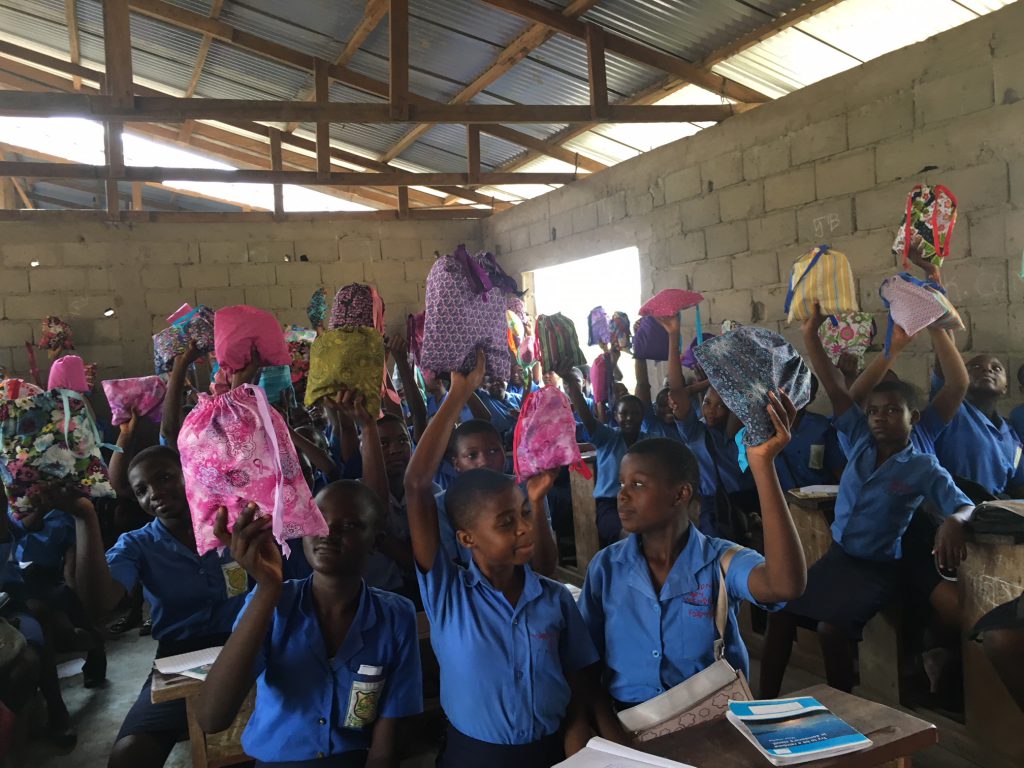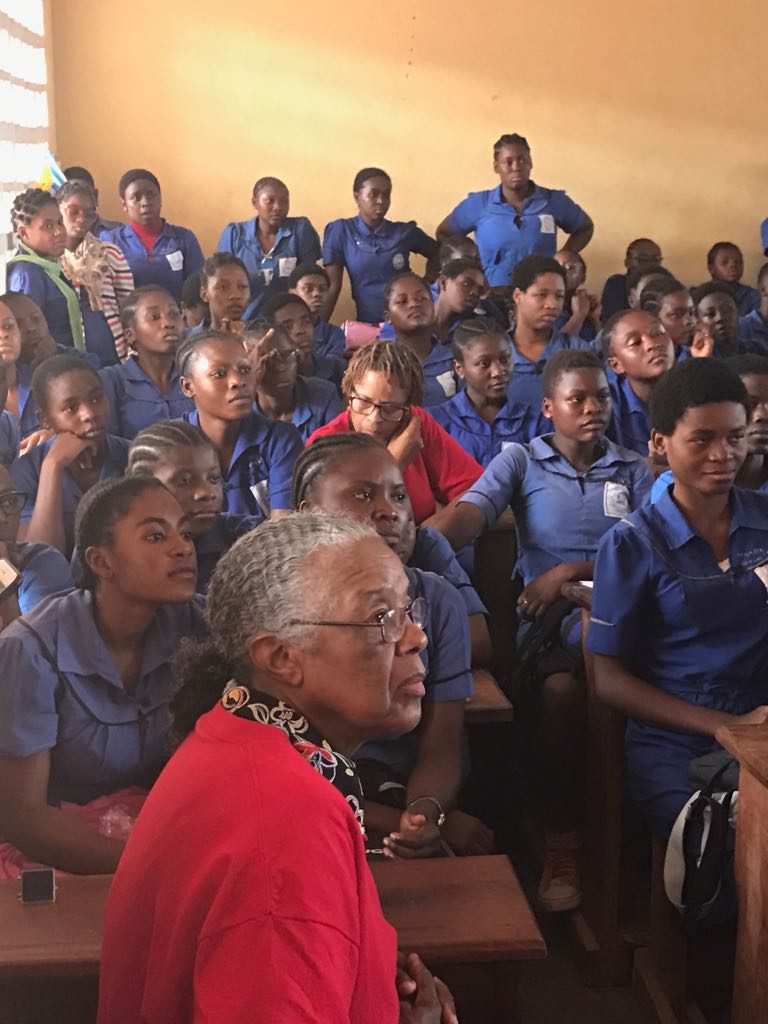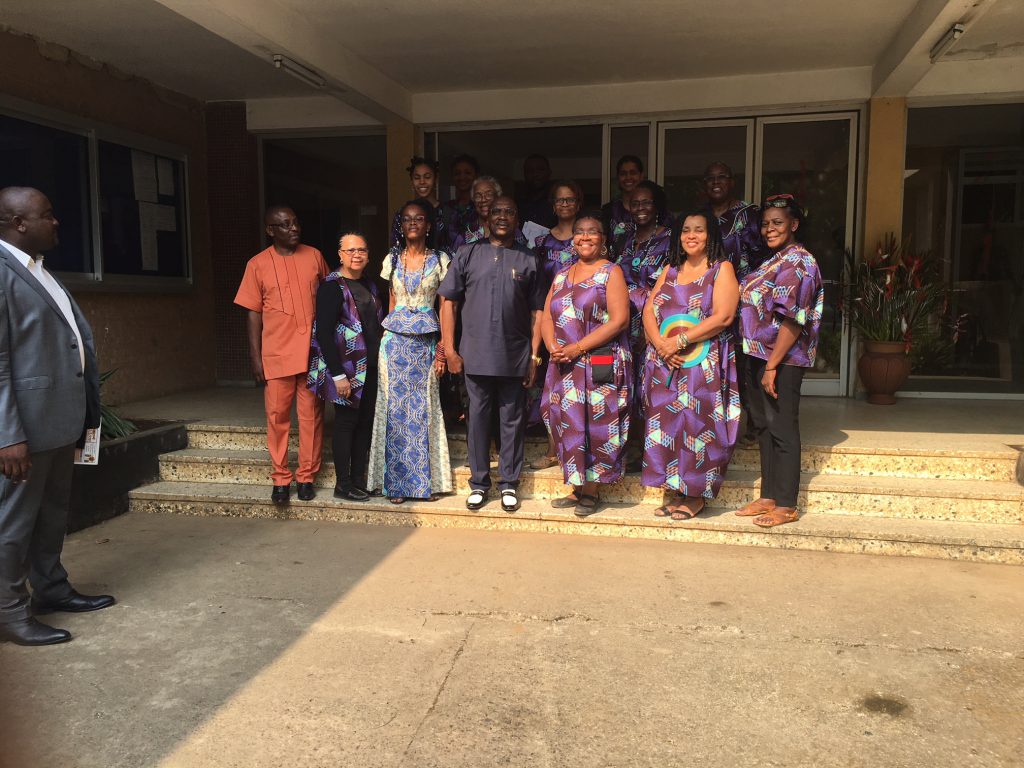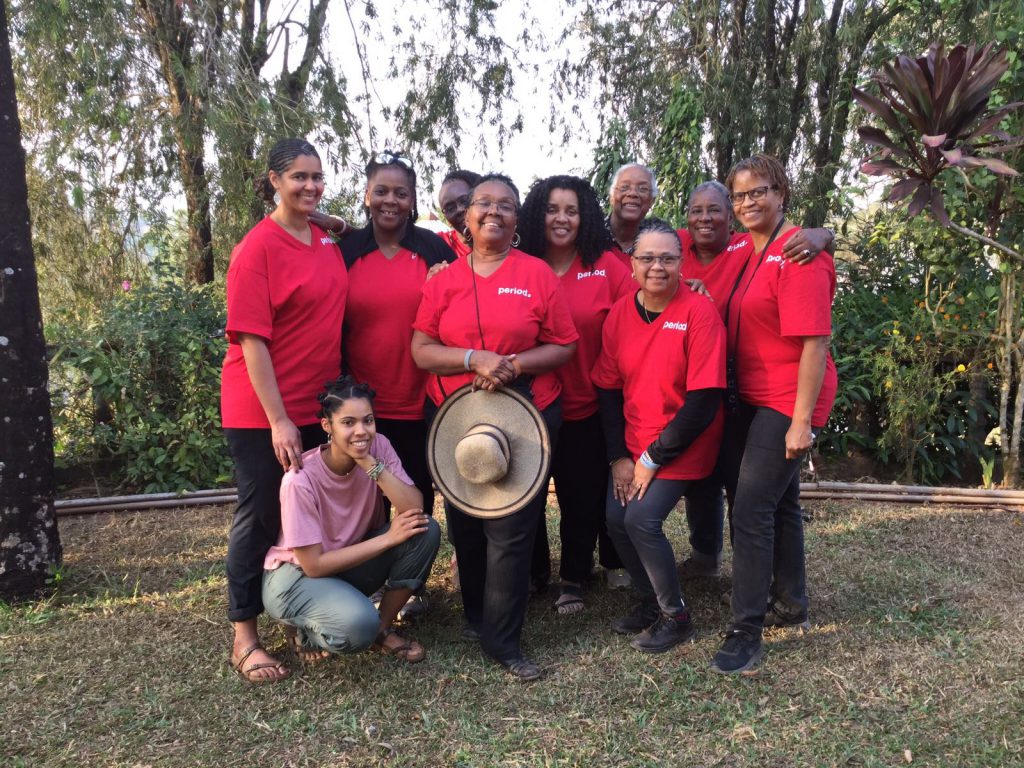A typical sewing circle at First African Methodist Episcopal (FAME) Church in Seattle, Washington, draws a crowd that spans culture, race, gender, and generational divides. Folks come from all over the Seattle metropolitan region, some even crossing the Puget Sound to get here every month. Other participants bring friends from out of state.
Everyone is here to create feminine care kits for girls in Cameroon, to enable them to stay in school during their periods.
But the sewing circle program extends far beyond the congregation at FAME. Similar sewing circles, again drawing people from all walks of life and throughout the region, have been organized by the Seattle Limbe Sister City Association at Congregation Beth Shalom, and at Baitul Ehsaan Mosque in Monroe. Altogether, the program draws on average 250 volunteers per month.
At a typical sewing circle at First African Methodist Episcopal Church, you will also see LueRachelle Brim-Atkins. LueRachelle wears many hats, among them co-chair of the Sarah Allen Sisterhood, a Women’s Ministry at FAME.
By the time she was elected president of the Seattle-Limbe Sister Cities Association (SLSCA), LueRachelle had visited the continent of Africa many times, some of those trips with the principal goal of connecting African-American women to their ancestry. A common refrain she remembered hearing from girls in Kenya was about how a lack of access to feminine care products routinely forced them to miss school during their periods.
LueRachelle soon learned that this problem confronted girls across the continent. She and her colleagues brought some of the much-needed products on subsequent trips, but quickly began searching for a more sustainable solution.

Girls at a school in Limbe hold up the feminine care kits they received from SLSCA.
The answer came when a friend noticed an article in the Seattle Times about DaysforGirls International (DfG), a locally owned-and-operated nonprofit dedicated to teaching people how to produce feminine care kits that can be washed and reused for up to 3 years. LueRachelle called DfG the very same day.
She rallied a group of women at FAME to co-sponsor a new project with the sister city association, which they called the Seattle-Limbe Sewing Circle. The feminine care products would go primarily to girls in the coastal Cameroonian city of Limbe, a sister city to Seattle since 1984. But she expanded the program’s mandate to cover all parts of the African country.
That expanded mandate necessitated a wider sewing circle, but LueRachelle is quick to point out that the chief motivating factor behind reaching out to Congregation Beth Shalom and Baitul Ehsaan Mosque was first-and-foremost to fulfill what she sees as the primary objective of the program.
“It doesn’t make sense to go halfway around the world to build community if we haven’t done that at home,” says LueRachelle. With that conviction at heart, she met with faith leaders at Beth Shalom and Baitul Ehsaan, who shared a strong desire to bridge religious divides in Seattle.
For her initial sewing circle of women, LueRachelle set a goal to produce 500 feminine care kits in their first year. The program produced such enthusiasm, however, that they moved the goal post to 1000, and even then exceeded it by 208 kits. A delegation of 10 members of SLSCA delivered them to Cameroon a year later, in January of 2016.

A group of SLSCA delegates sit with students at Tockem Ecolodge in Cameroon.
While there, the delegates noticed another important contributor to the forced absences that haunt girls in their sister city: A lack of water for cleaning feminine care products. Once back in Washington, the SLSCA set a goal of raising $30,000 to dig two water wells at schools in Limbe.
The delegates have made two more visits to Limbe since then, in December of that year and again this past January. With the growth of sewing circles at Beth Shalom and Baitul Ehsaan since then, the annual goal now lies at 1500.
Following a short break next year, the SLSCA is planning two back-to-back delegations in 2020. For the first trip, in addition to delivering their annual shipment of kits and training girls how to use them, the delegates will teach reproductive health to the girls and teach local women to sew their own kits. Later in the year, the delegates will help bring Delbert Richardson’s African American History Travelling Museum to Limbe for display at their three-day cultural festival.

SLSCA delegates on the steps of Limbe City Hall after meeting with the Government Delegate.
Contact Information:
LueRachelle Brim-Atkins
(206)722-4400

